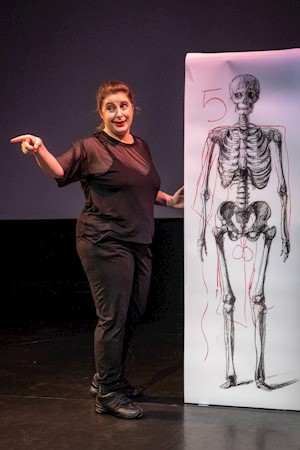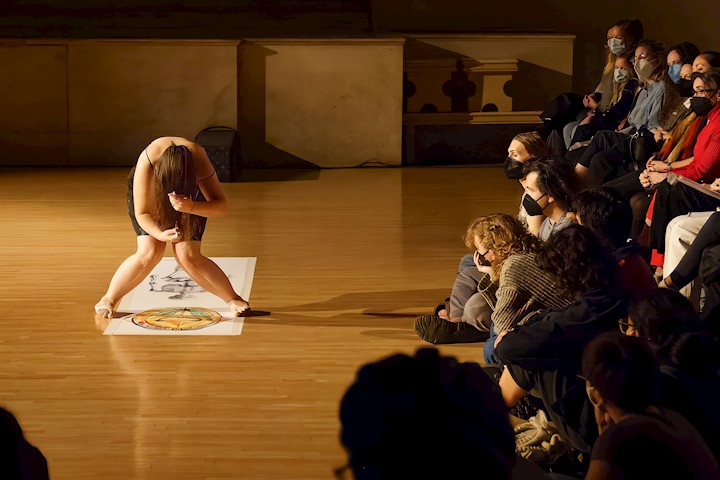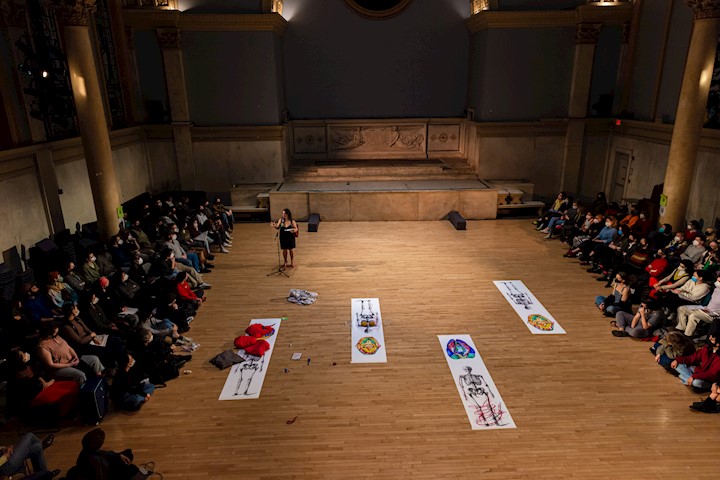
Photo: Todd Carroll
From the dictionary definition of self-discipline: correction or regulation of oneself for the sake of improvement.
Synonyms: continence, restraint, self-command, self-containment, self-control, self-government, self-mastery, self-possession, self-restraint, will, willpower.
For me, self-discipline is the key to working on the flexibility and strength of one’s mind, body, and spirit. Without self-discipline the life of an artist is impossible.
Self-discipline is a respect for what you love. It is your ability to continue choosing to work on your art despite being tired one day, sick another, or any other number of challenges that may arise.
No one is going to scream at you and tell you what to do and when to do it.
You are not always going to have someone outside of yourself telling you what to do.
As an artist, sometimes you struggle to answer the question “Why do you do the work?” When you can’t find a satisfying answer, self-discipline is there to rescue you.
You are responsible for yourself. The seed of self-discipline is what we as dance teachers need to sow in our students, because at the end of the day, they are the ones who will be alone with themselves making art. It’s the same thing that a mother does with her child – she wants her child to be as independent and as self-sufficient as possible. That is also the role of a dance teacher.
Sometimes teachers (and mothers) are so possessive that in order to keep their students by their side, they create a debilitating dependency. If dancers cannot be by themselves without the teacher’s guidance, the students will fail drastically. Sometimes the bond between student and teacher turns out to be a negative restraint. Sometimes it intentionally or unintentionally springs from the rush of power of controlling your students’ creative lives.
A student might be with you for months or years before moving on. It’s our job to know when to say, “Call me when you perform. Keep me updated about your life and career!” and let them go.
Self-discipline is a big word that we often don’t take the time to digest, but in the end, for our students, it may be the most important lesson.

Photo: Todd Carroll
As a dance artist, you are alone with yourself. You are connected to yourself. You assume responsibility and complete ownership of your mission as an artist. I’ve included a list of a few words below that may help us begin digesting the many implications and facets of self-discipline:
Self-taught
Self-discipline
Self-knowledge/ Self-understanding
Self esteem
Self-love
Self-awareness
Self-care
Definition of self-taught:
1. having knowledge or skills acquired by one's own efforts without formal instruction.
2. learned by oneself. self-taught knowledge.
Synonyms: autodidactic, self-educated, self-instructed.
Definition of self-knowledge: knowledge or understanding of one's own capabilities, character, feelings, or motivations: self-understanding.
First known use of self-knowledge was in 1537, in the meaning defined above.
Definition of self-esteem:
1. a confidence and satisfaction in oneself : SELF-RESPECT
2. Self-Conceit
Synonyms: ego, pride, pridefulness, self-regard, self-respect.
Definition of self-aware: characterized by self-awareness
First known use of self-aware was in 1924, in the meaning defined above.
I love the word “self” because it empowers you as an artist but at the same time it gives you a lot of responsibility. I have many dancers that come to me and say that they had a “bad” teacher for five years. Maybe it’s true, but thanks to self-discipline, the dancer is able to see this with time and can make a choice to leave or move on. Note: the term "bad" is relative! What could this mean? A teacher with insufficient or outdated knowledge? Bad intentions?
Self-discipline empowers you, provides you with security and reassurance.
During my dance classes, beyond providing knowledge and information, I need to encourage my students to cultivate their own self-esteem. It is very important and difficult to do.
If you see the student and they do not understand something physically but they understand it mentally, encourage them, let them know that they are on the right path and they will find their way. I usually say something to the effect of “I have patience and hope for you. You also need to have patience and empathy for yourself too!"
Like a child when starting to walk, parents need to stimulate.
Teachers stimulate the students.
As a teacher, you have to have hope, patience, and trust in the development of your students.
If you are a dance teacher and you’ve lost hope, you cannot teach because you do not trust your students ability to improve. The student needs full commitment. Otherwise they can never build their sense of security and self-esteem necessary for self-discipline.
For me, hope comes naturally most of the time, though sometimes I need to force it because not all dancers will be professionals, but they can/will be dance enthusiasts, dance advocates, members of the dance audience, etc.
That is hope. You must believe that through dance education you can change people’s lives! You can make an impact on the world changing someone’s feeling toward themselves!

Photo: Todd Carroll
1. “Self-discipline.” Merriam-Webster.com Dictionary, Merriam-Webster, https://www.merriam-webster.com/dictionary/self-discipline. Accessed 13 May. 2022. back to text
Works Cited
“Self-knowledge.” Merriam-Webster.com Dictionary, Merriam-Webster, https://www.merriam-webster.com/dictionary/self-knowledge. Accessed 13 May. 2022.
“Self-discipline.” Merriam-Webster.com Dictionary, Merriam-Webster, https://www.merriam-webster.com/dictionary/self-discipline. Accessed 13 May. 2022.
“Self-esteem.” Merriam-Webster.com Dictionary, Merriam-Webster, https://www.merriam-webster.com/dictionary/self-esteem. Accessed 13 May. 2022.
“Self-love.” Merriam-Webster.com Dictionary, Merriam-Webster, https://www.merriam-webster.com/dictionary/self-love. Accessed 13 May. 2022.
“Self-aware.” Merriam-Webster.com Dictionary, Merriam-Webster, https://www.merriam-webster.com/dictionary/self-aware. Accessed 13 May. 2022.